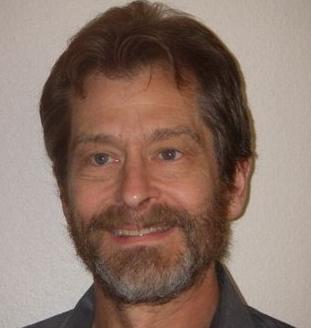"We have not ended racial caste in America; we have merely redesigned it." -- Michelle Alexander
It's a glorious time in America, what with the second inauguration of an African-American president -- during our celebration of Martin Luther King Jr.'s birthday to boot! How far we've come since the 60's when the Civil Rights Movement put a stake through the heart of Jim Crow racism. These days, African-Americans and all people of color are equal partners at every level of society. They've risen to the top as wealthy CEO's and celebrities, professors and policemen, athletes and artists, leaders in every realm; even Leader of the Free World. Sure, big problems still linger; we haven't reached the promised land yet. But falling short of the goal of complete racial equality is no reason to give up now, having come so far!
That's the narrative, at least.
That's the narrative I, as a liberal white man, believed until last year. That's when I read Professor Michelle Alexander's eye-opening book "The New Jim Crow: Mass Incarceration in the Era Of Colorblindness" at the urging of Leonard Pitts, Jr. in his passionate editorial last Martin Luther King Jr. day wherein he emphasized the historical importance of her book.
In her book and in her ringingly eloquent presentation last Wednesday night in Portland, Alexander contends -- with a trove of data to back up her contention -- that the damning label of "felon" is a societal black hole into which our nation has for three decades shoveled the flower of our African-American male youth.
The disproportionate incarceration of black American men, mostly for victimless drug offenses (the Bureau of Justice Statistics states 55% of federal prisoners and 21% at state-level are incarcerated for drug-related offenses) smacks of racism. So does those men's prospect of reemergence as lifelong felons stripped of rights, disfranchised and excluded from mainstream civic life. All this, even as we celebrate the successes of "post-racial" America. How could we miss such massive racial injustice in our country?
It's got to do with that race-neutral term "felon".
Let me ask you this: how's crime in America? You would probably agree that it's a serious problem and thank goodness we have been able to lock up so many dangerous criminals who would otherwise be out on the streets menacing us law-abiding citizens.
In fact, with 2.2 million people in prison or jail, the US has the highest incarceration rate of any nation on Earth. An additional 5.85 million Americans are on parole or probation. That's about 8 million Americans under the control of the criminal justice system. Out of 308 million Americans (2.5%). At any given time, there about 1 in 10 black males in their thirties are in prison or jail. This, in the Land of the Free.
There are two ways to look at these statistics. Most commonly, we infer that there is an horrendous level of crime in our cities. But Michelle Alexander suggests an alternative view. It is based on the fact that most felony arrests are for minor drug possession (2 ounces of marijuana will usually do it) and a large majority of people under the control of the criminal justice system are African-Americans. Her conclusion: we have a law enforcement regime that's out of control. Out of OUR control that is.
She maintains that we have a system that disproportionately targets people of color in poor communities and sweeps vast numbers of them into the criminal justice system where they are stripped of basic rights of citizenship, often for life.
We condone this because the term "felon" rings our alarm bells. We don't think of a non-violent pothead, but rather the truly dangerous criminal he is lumped together with, under the rubric of "felon". So even after release, the "scarlet F" will dog ex-offenders the rest of their lives. "Checking the box" that asks about felony convictions all but guarantees your application is destined for the waste basket. Lacking jobs, felons are denied public assistance, even food stamps. Voting rights are denied to felons in most states. Despite restoration procedures in some states, the Sentencing Project estimates that 1 in 13 black men in this country today are unable to vote due to felony convictions. That's 3 million black men (and women) without a voice in our democracy.
The Cosby-family success stories, while inspiring, also mask -- and therefore anesthetize us to -- the massive social disaster occurring in our midst. Even in the black community, according to Alexander, there is a broad faith in a generally fair system that rewards hard work and education. It will, but not reliably, for the system is rigged. Be careful when "driving while black". As one of the panelists preceding Ms Alexander's presentation the other night said: the dazzling Obama family need only walk a short distance from their White House home to encounter the grim conditions and systematic abuse that most African Americans still endure in the 21st century.
So this is the New Jim Crow, hiding behind the colorblind policy of "getting tough on crime".
Alexander argues that the engine propelling these regressive policies for the past 30 years has been the War on Drugs. Although there was not a pressing drug problem back in 1982 (a full 3 years before cheap crack cocaine flooded inner cities) that is the year the Reagan administration launched its War on Drugs. Effectively bribing reluctant local law enforcement agencies with federal funding to shift their attention away from serious local crime to drug busts and by helping militarize local police forces, our federal government started in motion a costly ($1 trillion to date) and destructive war upon its own citizens. Black citizens primarily, for the thrust of enforcement has been almost exclusively in poor black communities.
(Note: You can view every article as one long page if you sign up as an Advocate Member, or higher).





